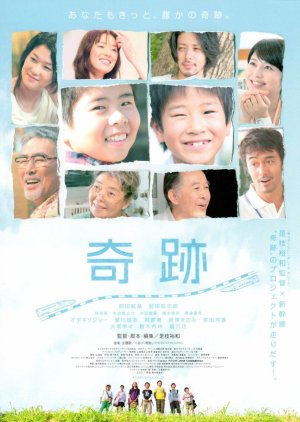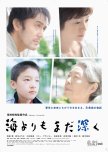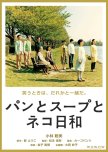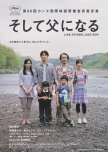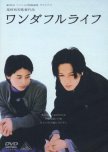 A Film Guide: The Works of Hirokazu Koreeda
A Film Guide: The Works of Hirokazu Koreeda - Português (Portugal)
- Türkçe
- English
- magyar / magyar nyelv
Onde assistir O Que Eu Mais Desejo
Grátis (sub)
Elenco e Créditos
- Maeda Koki Papel Principal
- Maeda Oshiro Papel Principal
- Abe HiroshiSakagami MamoruPapel Secundário
- Hashizume IsaoOsako ShukichiPapel Secundário
- Ohtsuka NeneOsako NozomiPapel Secundário
- Kiki KirinOsako HidekoPapel Secundário
Resenhas

Koreeda understands children. Here, he portrays the children's "innocent" and wishful thinking in a manner that it should be. Koichi's wish of a family being together (to his final wish) shows a 12-year-old child's longing and eventual acceptance of the things he can and cannot change. Ryu's wish for something reflects his innocence to his final wish reflects his growth and understanding. This is the same for the other young supporting characters as well.
I Wish isn't dramatic, perhaps it would even come out not as strong as Koreeda's other films (it's tone is similar to that of Our Little Sister and both were received well in Cannes). But it didn't matter because the star of the film are the children and how they're making sense and living their own respective situations. It's gentle and it's so natural. Once again, Koreeda proves his consistency as a director with his trademarks: frame and music pacing, young talented cast, little details, family theme, the apparent contrasts, beautiful cinematography and symbolism.
Here, we have much more upbeat songs which reflects the film's overall tone. The two leads being brothers in real life is a very good decision as it helps a lot with the chemistry. That's also saying that the young cast is such a delight to watch. The little details in the sponge cake, swimming trunks, volcanic ash, CD, vegetable, horse-meat sashimi are recurring and symbolic throughout the film.
The central theme revolving around two bullet trains intersecting is also a really nice touch: it reflects the brothers and their life. Each living at the end of each other (one in Kagoshima, known from being next to a volcano and the other in Fukuoka while not "countrysides", it's less suffocating that Tokyo; hence, really beautiful setting) and each of them going in their separate ways. Hitching a plan to meet and see this "miracle" of two trains symbolizes them.
The apparent contrast between the two also compliment each other: the eldest is unhappy and grumpy, the younger one is energetic and happy. Living in Kagoshima is problematic while living in Fukuoka seems more carefree. The father is a happy-go-lucky while the mother is more serious. Koichi wears a uniform to school and lives with his grandparents while Ryu doesn't wear a uniform and lives his father and his band mates. These contrast work to show the opposite between the two yet what also ultimately ties them together: brotherhood.
Perhaps the fact that its 2 hour running time seem to feel a little draggy and long to watch. I had no problem with Our Little Sister's lack of direction/ultimate goal and just mere storytelling which is similar to I Wish but I think I Wish touches on little sub-plots that could have been avoided so as to not let it feel like it was too stretched out. But other than that, this is another one of Koreeda's great works.
Esta resenha foi útil para você?

